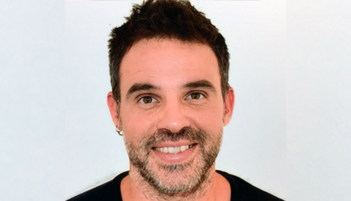
Grup Batallé
Spain
Francesc was born in Blanes in 1983. He is the son of a family of fishermen, but he was always clear about his place in the agricultural and livestock field.
He graduated from the Faculty of Veterinary Medicine of the Autonomous University of Barcelona (also known as UAB) in 2006 and studied in 2010 an MSc degree in Pig Production and Health at the University of Lleida (in partnership with the Complutense University of Madrid, the University of Saragossa and the UAB).
Since 2016, he is a Resident at the European College of Porcine Health Management (ECPHM).
He started his career as a pig nutrition technician at Rettenmaier Ibérica (2007-2012), and he later offered diagnostic services as a swine technician at Esteve Veterinaria (2012-2015). Since 2015, he works as Technical Manager in Batallé Group. Batallé Group is a company with 13 sow farms, 20 nurseries, and 230 fattening facilities. This company has its own genetic: 16,000 white sows, 9,000 pure Duroc sows and breeds close to 500,000 pigs/year. Batallé has also 2 feed plants and slaughterhouses with a capacity of 10,000 pigs/day, cutting plant to process 1,200,000 pigs/year and cellars to cure hams.
Many more piglets, the same amount of colostrum and the same amount of milk: this is probably the cause of the major number of problems that swine producers have observed during the last 10 years. Neonatal diarrhea is the first one we face, and it has a direct impact on our production cost, not related just with the piglets that will not reach weaning (mortality) but also related with the performance of the ones who survive during the whole production cycle. Veterinarians think in pathology (bacteria and viruses), engineers in climate (temperature, ventilation, air drafting), nutritionists in formulation and feeding strategies and farmers in management… like many other problems we have during the 5-6 months we need to raise a pig, neonatal diarrhea must be faced taking into account plenty of small details, looking for the equilibrium between infection pressure, immunity, and management of the facilities, sows, and piglets. Observing watery feces and detecting sick animals in a farrowing room is usually easy, but currying out a well-done diagnostic and discovering where the problem originates is… a little more complicated. In any case, the tough job will be to define the strategy, to put it into practice and to achieve good results week after week. In Batallé Group, we have 1000 farrows every week, so we had, we have and we will have neonatal diarrhea affecting some litters, but today we have specific protocols for prevention and treatment, some of them are general, others for some specific farms. The objective: 0 losses for neonatal diarrhea, to maintain weight at weaning and to send healthy piglets to nurseries in order to maximize the potential of our genetic.
